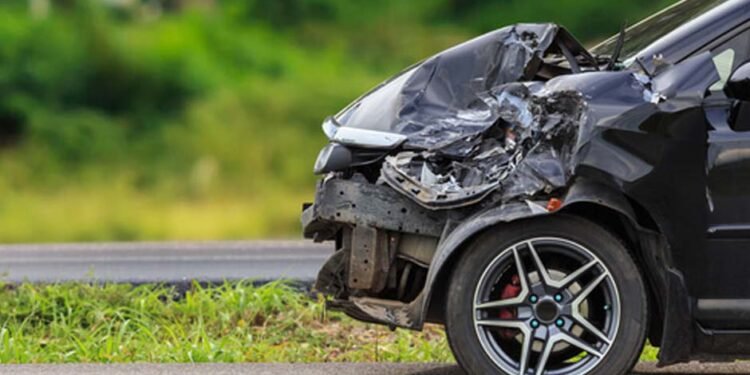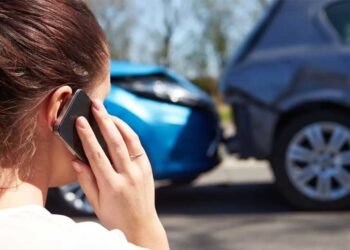Car accidents can be chaotic and confusing events, but amidst the chaos, evidence plays a crucial role in determining fault. Whether it’s physical evidence like vehicle damage and skid marks, eyewitness testimony, or documentation such as police reports and medical records, each piece of evidence helps paint a clearer picture of what happened on the road. Let’s explore the various types of evidence used in determining fault in car accidents and why gathering and analysing evidence is essential for seeking justice.
Types of Evidence in Car Accidents
When it comes to investigating car accidents, there are several types of evidence that can provide valuable insights into what transpired. Physical evidence, such as the damage to vehicles, the location of skid marks, and debris on the road, can offer clues about the cause and severity of the accident. This tangible evidence helps accident reconstructionists and investigators piece together the events leading up to the collision. Additionally, eyewitness testimony can provide first-hand accounts of the accident from individuals who witnessed it unfold. While eyewitness testimony can be valuable, it’s essential to recognise its limitations, such as discrepancies in recollection and potential biases.
The Importance of Gathering Evidence
Promptly gathering evidence after a car accident is crucial for several reasons. First and foremost, evidence can degrade or disappear over time, especially in cases where physical or forensic evidence is involved. Seeking assistance from Huntsville Crime Scene Cleanup Help can be essential in preserving crucial evidence and maintaining the integrity of the scene. Skid marks may fade, debris may be cleared away, and memories may become less reliable. By documenting the scene of the accident and collecting evidence as soon as possible, you can preserve crucial information that may be needed later on. Additionally, gathering evidence promptly demonstrates your commitment to seeking justice and holding accountable those responsible for the accident. Choose to work with an accident management company if you want to handle your claim correctly and get the compensation you deserve.
Analysing and Interpreting Evidence
Once evidence has been collected, it must be carefully analysed and interpreted to determine fault accurately. This process often involves the expertise of accident reconstructionists and other specialists who can analyse complex data and draw conclusions about what happened. However, it’s essential to recognise that interpreting evidence is not always straightforward and may involve some degree of subjectivity. Different investigators may interpret the same evidence differently, and biases can influence how evidence is interpreted. Therefore, it’s crucial to approach the analysis of evidence with a critical eye and an open mind.
The Role of Evidence in Insurance Claims and Legal Proceedings
In addition to its role in accident investigation, evidence also plays a crucial role in insurance claims and legal proceedings. Insurance companies rely on evidence to determine liability and coverage in car accidents, using it to assess the extent of damages and injuries. Similarly, evidence is presented in legal proceedings such as lawsuits and arbitration hearings to support arguments and establish fault. In both contexts, the strength and reliability of the evidence can significantly influence the outcome of the case.
Do I Need a Replacement Vehicle?
Is your car going to be out of commission after an accident? This can be frustrating when the driver caused the crash. Now, your vehicle has extensive damage and will need major repairs before it can be back out on the road.
Before you go through the claims process, you probably want to know more about replacement vehicles. While you might be considering one, you can also be worried about the price and think about whether one is really necessary. Let’s take a look at what you need to know about replacement vehicles after a crash.
The Other Driver Pays
One of the reasons why people are apprehensive about replacement vehicles is because of the price. However, this isn’t an expense that you have to pay for. If the driver caused the crash, this is going to be part of your claim. They’ll cover the price of a replacement vehicle since they’re the reason why you have to get one. Of course, they also cover the cost of repairs to your original car.
Therefore, know that the other driver will pay for a replacement vehicle. So, if you’re in a position where you need a car to get to work, take the children to school or even go to the shops, don’t hesitate to get one. You should never be disadvantaged from a car accident, especially if it wasn’t your fault.
Choose a Life-for-Like Vehicle
When you’ve decided to get a replacement car, you’ll need to choose a like-for-like vehicle. This means that the car you hire should be very similar to what you already have. For example, if you’ve currently got an SUV, you should hire an SUV. If you have a 1-litre engine, you should get a vehicle that also has the same size. Not only will you find it easier to drive this car, but it means that you’re not hiring something that’s additional money.
If you choose a car that’s better than what you currently have, you might have to pay the difference. So, it’s best to get expert advice to ensure that this doesn’t happen. Some accident management companies will sort out the replacement vehicle for you, which can avoid this scenario.
Conclusion
In conclusion, evidence plays a central role in determining fault in car accidents and seeking justice for those involved. Whether it’s physical evidence, eyewitness testimony, or documentation, each piece of evidence provides valuable insights into what happened on the road. By understanding the importance of evidence and being proactive in gathering and analysing it, you can better navigate the aftermath of a car accident and work towards a fair resolution. Remember, evidence is not just a tool for assigning blame but a means of uncovering the truth and holding accountable those responsible for causing harm.












